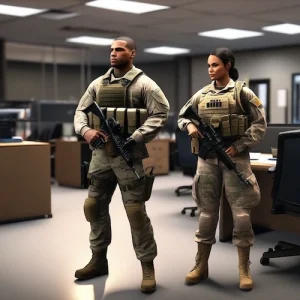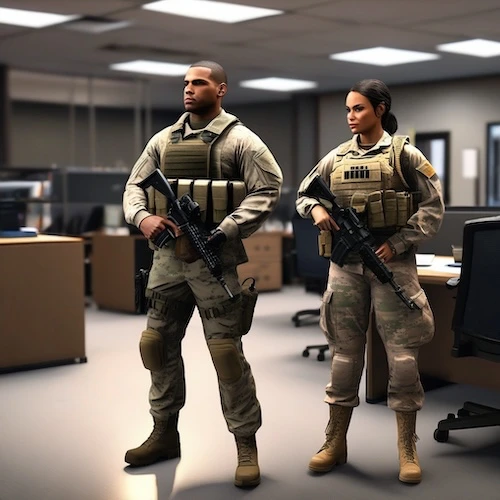How to Fight an Other Than Honorable (OTH) Discharge at a Separation Board
Gonzalez & Waddington, Attorneys at Law defend Soldiers, Sailors, Airmen, Marines, Guardians, and Coast Guardsmen at administrative separation boards, Boards of Inquiry (BOIs), discharge upgrade boards, and courts-martial. An Other Than Honorable (OTH) discharge is the harshest administrative outcome possible—stripping VA benefits, destroying reenlistment chances, and leaving a permanent mark on your record. This guide explains how to fight an OTH discharge at your separation board and protect your career.
Why OTH Discharges Are So Damaging
- Benefits loss: VA disability, healthcare, GI Bill, and VA loans may be denied.
- Employment impact: Employers review DD-214s; an OTH signals serious misconduct.
- Reenlistment ban: OTH discharges almost always bar reenlistment in any branch.
- Lifetime stigma: An OTH follows you for life in background checks and government applications.
How OTH Discharges Are Decided
- Board process: A panel of officers (and sometimes senior enlisted) reviews evidence and decides retention vs. separation, and characterization of service.
- Burden of proof: The government must prove allegations by a preponderance of the evidence (more likely than not).
- Outcome range: Retain, or separate with Honorable, General, or Other Than Honorable characterization.
Defense Strategies Against OTH Discharges
- Attack the elements: Show where the government cannot prove every required element of the alleged misconduct.
- Impeach witnesses: Use prior inconsistent statements, bias, or credibility problems to weaken government testimony.
- Expose procedural errors: Denied witnesses, surprise evidence, or late discovery can undermine the government’s case.
- Mitigation narrative: Even if some misconduct occurred, argue that service record and rehabilitation justify General or Honorable instead of OTH.
- Retention case: Emphasize mission readiness, billet impact, and value to unit if retained.

Evidence That Helps Avoid an OTH
- Performance records: NCOERs/OERs, FITREPs, EPRs, OPRs, or CHIEFEVALs showing excellence.
- Awards & commendations: Prove dedication, deployments, combat service, or leadership.
- Medical/behavioral health: PTSD, TBI, MST, or other mitigating conditions tied to alleged conduct.
- Character endorsements: Strong letters from senior leaders, peers, or subordinates.
- Rehabilitation steps: Counseling, PME, treatment, volunteer work since the incident.
Defense Framework for Fighting OTH Discharges
1. Introduction & Theme - One-sentence theme: why an OTH is unjust and disproportionate. 2. Service Record (Exhibits A–C) - Evaluations, awards, deployments, qualifications. 3. Factual Defense (Exhibits D–F) - Show contradictions, unreliable witnesses, missing proof. 4. Procedural Errors (Exhibits G–H) - Denied witnesses, improper evidence, command influence. 5. Mitigation (Exhibits I–J) - Medical conditions, rehab efforts, continued strong service. 6. Retention & Alternatives - Argue for retention, or at minimum, an Honorable/General characterization. Conclusion: - Retention is the fair, mission-smart outcome; OTH is unjustified.
Common Mistakes When Facing OTH Discharges
- Waiving the board without legal advice.
- Failing to present witnesses or documentary exhibits.
- Admitting misconduct hoping for leniency (hurts appeals later).
- Letting the government frame the entire narrative unchallenged.
- Not addressing how characterization affects retirement and benefits.
Video: How to Fight an OTH Discharge
We Defend Service Members Against OTH Discharges
An OTH discharge is not automatic. With the right defense strategy, many service members avoid it through retention or upgraded characterization. Don’t let an OTH destroy your future without a fight.
Gonzalez & Waddington — ucmjdefense.com — 1-800-921-8607
FAQs: Fighting OTH Discharges
Can I avoid an OTH discharge?
Yes. Strong defenses, mitigation, and rehabilitation evidence can persuade boards to issue a General or Honorable discharge instead.
What happens if I do nothing?
You risk separation with an OTH, losing benefits, and carrying a permanent stigma on your record.
Do medical conditions help?
Yes. PTSD, TBI, MST, and related diagnoses are powerful mitigation factors when tied to the alleged misconduct.
Can an OTH be upgraded later?
Yes. You can petition a DRB (within 15 years) or BCMR/BCNR for upgrades, but winning at the board is much easier.
Do I need a lawyer for an OTH board?
Not required, but experienced counsel greatly improves your chances of avoiding an OTH characterization.


